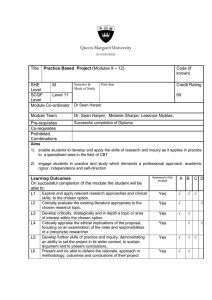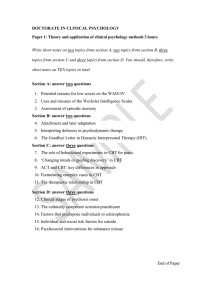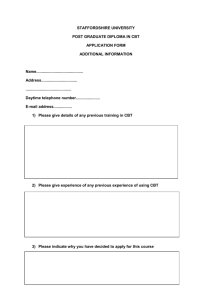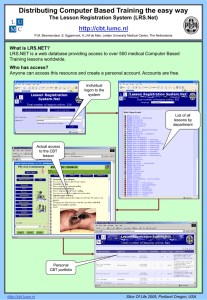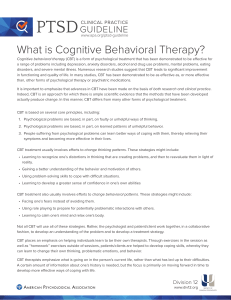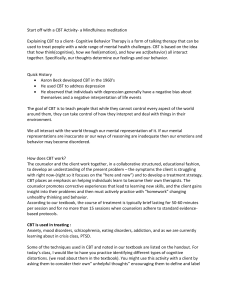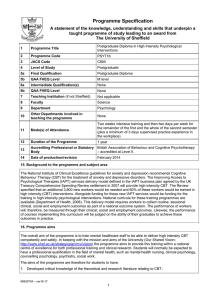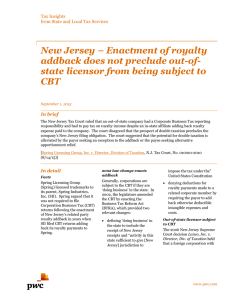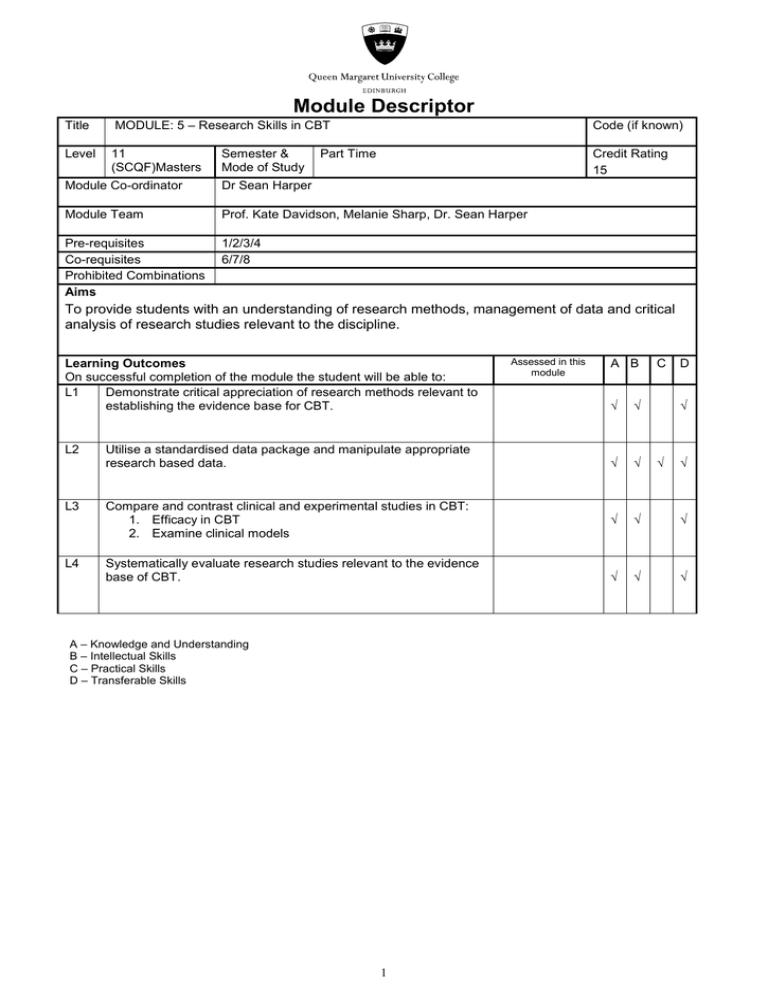
Module Descriptor
Title
MODULE: 5 – Research Skills in CBT
Code (if known)
Level
11
(SCQF)Masters
Credit Rating
15
Semester &
Mode of Study
Part Time
Module Co-ordinator
Dr Sean Harper
Module Team
Prof. Kate Davidson, Melanie Sharp, Dr. Sean Harper
Pre-requisites
Co-requisites
Prohibited Combinations
Aims
1/2/3/4
6/7/8
To provide students with an understanding of research methods, management of data and critical
analysis of research studies relevant to the discipline.
Learning Outcomes
On successful completion of the module the student will be able to:
L1
Demonstrate critical appreciation of research methods relevant to
establishing the evidence base for CBT.
L2
L3
L4
Assessed in this
module
A B
C
D
√
√
Utilise a standardised data package and manipulate appropriate
research based data.
√
√
Compare and contrast clinical and experimental studies in CBT:
1. Efficacy in CBT
2. Examine clinical models
√
√
√
Systematically evaluate research studies relevant to the evidence
base of CBT.
√
√
√
A – Knowledge and Understanding
B – Intellectual Skills
C – Practical Skills
D – Transferable Skills
1
√
√
√
Learning Experiences
The module will engage the student in the following types of learning experiences:
21 hours of research seminars which are Laboratory based
7 hours of small group research Tutorial focussed on critical analysis of literature
3 hours literature research laboratory based teaching at University of Edinburgh
119 hours of individual private study
TOTAL
= 150 hours
Assessment Pattern
Assessment of data management skills-Students are required to successfully complete all research
assignments on computer based learning package ‘Statsbasics’ (see below for detail of content) Weighting
50%
Critique of selected CBT research study relevant to area of practice (2,000 words) Weighting 50%
Both elements need to be passed to be successful
Can this Module be Anonymously marked?
Yes/No
If No please provide an explanation.
Content
Critical analysis of literature
Research design and methodology: single case design, group design, experimental design, basic
experimental hypothesis testing, randomised controlled trials.
Methods of Data Collection
Summarising Data
Visualising Data
Correlation and Association
Standard Scores and the Normal Curve
Statistical Inference
Statistical Tests
Necessary Skills
(All of above have assignments for students to complete)
Main Texts
Field A; Hole G. (2003) How to design and report experiments, Sage
Field Andy, P. (2005) Discovering statistics using SPSS for Windows, Sage
Balnaves M Caputi P (2001) Introduction to Quantitative Research Methods. Sage Publications
Silagy C Haines H (eds) (1999) A guide to Evidence-based Health Care. BNJ Publishing London
Reed J Proctor S (1995) Practitioner Research in Health Care Chapman and Hall London
Polit D Beck C Hungler
McQueen R (2006) Introduction to Research Methods and Statistics in psychology. Pearson prentice Hall.
Creswell J W (2003) 2nd ed Research Design – qualitative, quantitative and mixed methods approaches. Sage
2003
Kranzler J H (2007) Statistics for the Terrified. Prentice Hall.
Other relevant details
2
Signed Prof. Kate Davidson
Date 2/4/09
Registry use only
Date received
3

